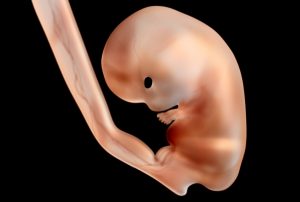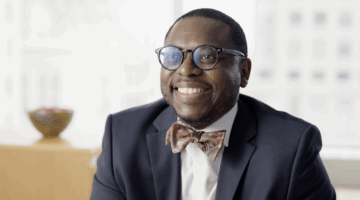 People get divorced. It’s regrettable, obviously, but hardly the type of issue that typically belongs in federal court. But here we are.
People get divorced. It’s regrettable, obviously, but hardly the type of issue that typically belongs in federal court. But here we are.
What started as your standard run-of-the-mill divorce case may get the attention of the United States Supreme Court. That’s because the Thomas More Society—which is a national public interest law firm that says it’s “dedicated to restoring respect in law for life, family, and religious liberty”—has filed a petition for writ of certiorari with the US Supreme Court. The petition, on behalf of former Colorado resident Mandy Rooks, asks the Court to definitively rule that cryopreserved embryos are human persons, and therefore entitled to all the rights of other, like … born, humans.
The Rooks case is familiar for loyal readers. The central dispute is about the divorce of Mandy and Drake Rooks. When they were married, they, like many couples, struggled with infertility and turned to in vitro fertilization (IVF) to conceive their children. At the time of the divorce, three embryos had become their children, and there were six remaining cryopreserved embryos. Drake Rooks wants those six stored embryos discarded. Mandy Rooks wants to use the remaining embryos for conception. During the dissolution of marriage, the Colorado trial court ruled in favor of Drake Rooks, and the Colorado Court of Appeals affirmed that ruling.

How Legisway Helps In-House Teams Manage All Legal Matters In One Trusted Place
Operate with AI driven insights, legal intake, unified content and modular scalability to transform efficiency and clarity.
Last October, the Colorado Supreme Court weighed in, ruling that the Colorado Court of Appeals had used inappropriate factors when weighing the interests of the parties. The Colorado Supreme Court sent the case back to the trial court to weigh the parties interests properly. This included instructions not to consider such factors as the ability of the party wishing to use the embryos to afford a child, whether such a party already has children (as a factor, standing alone), or whether such a party could have non-genetic children by other means, such as adoption. That is where the case currently stands in Colorado.
Did Our Forefathers Intend For Frozen Embryos To Be Treated As Persons?
The petition at issue now asks SCOTUS to answer (1) whether extracorporeal (aka frozen) embryos created during a marriage are persons or property, and (2) whether classifying embryos as property, and therefore permitting one spouse to discard or donate them to a third party, violates the religious rights of the other spouse who believes the embryos have souls.
Up until this petition, and her recent change of counsel to a Thomas More Society attorney, Mandy Rooks had not been arguing that the embryos in dispute were actual people with souls. Instead, she had argued merely that fertilization, when done with the parties’ consent, constitutes an advance waiver of the right not to be a genetic parent, and that Drake Rooks was not permitted to withdraw his consent for her, his ex, to use the embryos for conception.

How The Law Office Of Stephen L. Thomas Jr. Reclaimed Valuable Hours And Strengthened Client Care With 8am
Founded in 2017, the Baltimore-based Law Office of Stephen L. Thomas Jr. unified case management, communication, and payments with 8am—saving 10–20 hours a week for clients, trials, and growth.
What’s In A Name?
The Colorado Supreme Court was careful to use the term “pre-embryos,” instead of the more colloquial term “embryos,” noting that the use of the term “pre” means that the embryo hasn’t actually been implanted into a uterus yet. It also pointed to a number of times where Colorado law is careful to note that a “person” does not include a human embryo.
The cert petition, in contrast, argues that it is “long-known biology that all human beings come into existence by the creation of the zygote upon the fusion of a sperm cell with a [sic] oocyte (egg cell).” The petition argues that from that earliest stage, the law must recognize embryos as persons. Building on that premise, the petition argues that a number of constitutional violations are present in the Rooks case. For one, the petition argues that the preamble to the Constitution, securing “the Blessings of Liberty to ourselves and our Posterity” intended for “Posterity” to mean our descendants, and that includes our embryos. Among the many other Constitutional violations noted in the petition there is that of the Thirteenth Amendment. You know, the one abolishing slavery and indentured servitude.
I spoke with attorney Tim Schlesinger about this petition. Schlesinger is well known in the assisted reproductive technology (ART) legal community for a case called McQueen. In McQueen, a man, like Drake Rooks, did not want his ex-wife to use their remaining cryopreserved embryos. In that case, Schlesinger was up against an even tougher situation thanks to being situated in Missouri and Missouri having a statute on the books that legally defines life to start at “conception,” and further defines conception to include “the offspring of human beings in the moment of conception until birth and at every stage of its biological development, including the human conceptus, zygote, morula, blastocyst, embryo, and fetus.” Despite this statute, the Missouri Court of Appeals ruled that the ex-wife’s use of the embryos would be a violation of the ex-husband’s Constitutional right *not* to reproduce.
Schlesinger notes in our conversation that “conception” is purely a legal concept. Medically speaking, an embryo or pre-embryo is a fertilized ova. But he notes that there are several fundamental flaws in the argument that embryos are persons. Among those is the Supreme Court’s established Constitutional right of reproduction – including the right to have a child or not to have a child. To define embryos as persons, Schlesinger explains, would take away the progenitors’ rights to determine to be genetic parents or not. Prospective parents would be forced to become parents of all of their frozen embryos, no matter how many, whether they wanted to or not. In other words, if the Supreme Court is going to overturn Roe v. Wade, it probably won’t be in a case about divorce and fertilized ova.
Our Dystopian Future
So my prediction is that like other recent cases with similar facts, this petition won’t be granted. That’s good for assisted reproductive technology, because a ruling that embryos are persons would implicate a host of mind-blowing issues. What if freezer doors are left open, or cooling tanks fail? What if no one wants the millions of cryopreserved frozen embryos in the country? Even those sympathetic to pro-life arguments applied to cryopreserved embryos may recognize the sharp changes in the legal system if embryos can’t be legally discarded.
 Ellen Trachman is the Managing Attorney of Trachman Law Center, LLC, a Denver-based law firm specializing in assisted reproductive technology law, and co-host of the podcast I Want To Put A Baby In You. You can reach her at [email protected].
Ellen Trachman is the Managing Attorney of Trachman Law Center, LLC, a Denver-based law firm specializing in assisted reproductive technology law, and co-host of the podcast I Want To Put A Baby In You. You can reach her at [email protected].